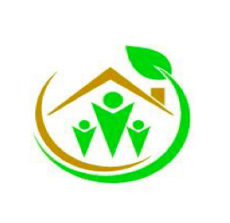PAVI
PAVI
Driving increased income for 15,000 Kenyan farmers through direct market linkages with local, national and international markets.
BCTA MEMBERSHIP STATUS
Alumni
SECTOR
Agriculture, Food & Beverage
HEADQUARTERS
Kenya
REGION OF INITIATIVE
Africa
SDG CONTRIBUTION
RELATED NEWS
The Pamba and Viazi Cooperative (PAVI), a wholly farmer-owned cooperative on Kenya’s south coast, joined Business Call to Action (BCtA) in December 2018 with a commitment to integrate 15,000 cotton farmers in Kwale and surrounding counties, on Kenya’s coast, into the supply chain of global garment company Cotton On Group by 2020. The win-win initiative not only provides a steady source of income for the farmers, it also ensures that Cotton On has a sustainable and transparent supply of cotton that will ultimately improve the livelihoods of 50,000 people in Kwale and surrounding counties by 2020.
PAVI was set up by the community, in partnership with Cotton On Group, Base Titanium Limited and NGO Business for Development (B4D), to generate income earning opportunities for farmers by creating direct links to market, such as the Cotton On agreement. The cooperative is owned by 1500 low income farmers, which it plans to increase to 15,000 by 2020. Farmers pay a membership fee of 2USD and purchase a minimum 100 shares at 0.2 USD nominal value (20 USD) in order to join. The fees and shares are deducted from cotton proceeds upon agreement with individual farmers who are not able to pay in cash.
In addition to 30 tons of cotton for Cotton On, in the past two years PAVI farmers have produced and additional 70 tons of cotton, 247 tons of sorghum and 21 tons of pulses for local, national and international markets. While directly impacting farmers by providing reliable markets for their produce, the initiative has already generated more jobs in the wider community, as small businesses have emerged to provide support services to smallholder farmers. This includes four small and medium enterprises (SMEs) working in land preparation, 15 SMEs transporting produce after harvest as well as farm equipment, 15 SMEs distributing smallholder produce at local markets, and three SMEs processing grain and stock feed.
The initiative has transformed the prospects of the participating farming community. According to a baseline survey, before PAVI was set up, two thirds of farmers’ families were living off less than US $1.25 a day, and 63 percent of households had either only completed primary school or not attended school at all. Additionally, the majority of smallholder farmers lacked direct access to markets and had to rely on middlemen for everything, from purchasing agricultural to selling their yields at less than fair market prices.



